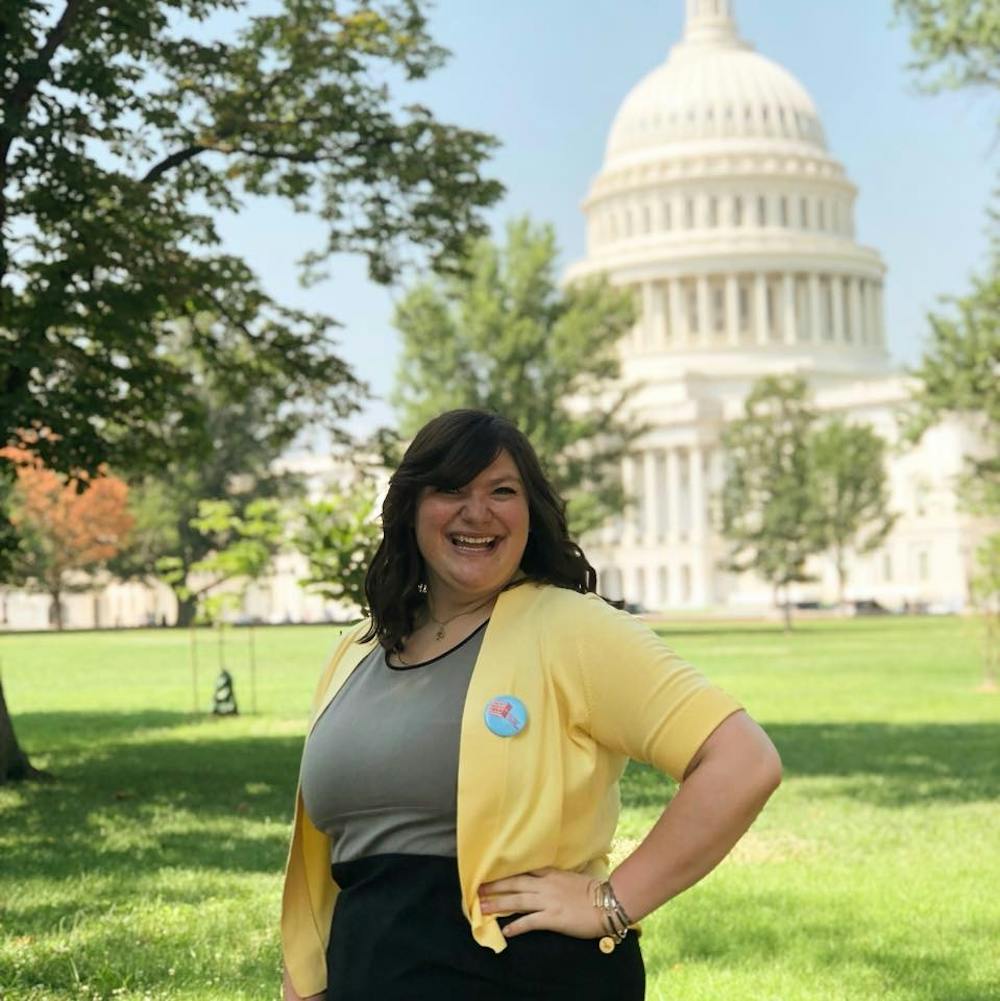Today, the period of Notice and Comment has opened for Secretary of Education Betsy DeVos’ proposed changes to Title IX. Secretary of Education Betsy DeVos has announced that she wants to codify her letter into law, sweeping the problem of sexual violence on college campuses under the rug. Her proposal is an insult to survivors who already have to cope with the trauma of facing sexual violence and will now have to face an unequal, unjust system that is designed for them to fail.
Specifically, DeVos' proposal would narrow the definition of sexual harassment from "unwelcome conduct of a sexual nature" as noted in Obama-era guidelines to the "unwelcome conduct on the basis of sex that is so severe, pervasive and objectively offensive that it denies a person access to the school's education program or activity."
The proposal also narrows the circumstances in which a school would be required to take action. Under the proposed rule, schools would investigate alleged incidents only if they were reported to the appropriate person and “occurred during a school-sponsored, funded, endorsed or, promoted activity or program, or on campus or in a school-owned building.” It would also reportedly allow accused students to have access to lawyers who could cross-examine accusers.
All of the regulations that AU follows were fought for by survivors. Our Office of Victim Advocacy, OASIS, was something survivors fought for. A designated Title IX Coordinator and the Title IX Office were things survivors fought for. The Sexual Assault Working Group, a group that works across university departments in an effort to end assault and protects survivors, was something that survivors fought for.
So having to enforce new, draconian laws around sexual assault is not only an injustice to survivors, but an insult to the years of activism that survivors have done on our own campus. All AU students should participate in the Notice and Comment period before these proposals become law.
Notice and Comment is a period of time between when new regulations are initially proposed and when it becomes legally binding. Most time periods are between 30 and 90 days, and the period of comment for this policy will be 60 days. Notice and Comment periods are crucial because the Department of Education legally has to solicit input on their regulations and is required to respond to the issues raised from the comments before they issue their final regulations. Most importantly, a court can strike down the regulations if the department cannot adequately respond to the comments raised.
Given courts can strike down regulations that are insufficiently responsive to public input, writing a detailed comment is an important way for students and advocates to influence the Department of Education’s decision-making.
If you are unfamiliar with how to write an effective comment, below is advocacy group Know Your IX’s detailed instructions:
- Use both data and personal narratives in your comment. Data is important as it gives an ‘objective’ side to your personal story. But including narrative is also important, as it humanizes the conversation.
- It’s better to be more inclusive when writing a comment. Bring in as many relevant issues as possible with statistics, policy, and legal information as you can. The more issues or holes you poke in their policies, the more work they will have to do answering your concerns in the Department’s final statement.
- Be organized. Clearly identify the issues the Department should know and if you are writing about a specific part of the policy, cite it.
- Suggest alternatives. This can include not regulating an objective at all.
- If you’re a law student or lawyer, make your comments sound like a legal brief. This will bolster your credibility as a commentator.
You can submit your comment here over the next 60 days -- any time between now and Jan. 28, 2019. The issue of campus sexual violence is too important for students to remain silent. Those who can and want to raise their voices should submit their comment before it’s too late.
Steph Black is a senior in the College of Arts and Sciences and a columnist for The Eagle.





